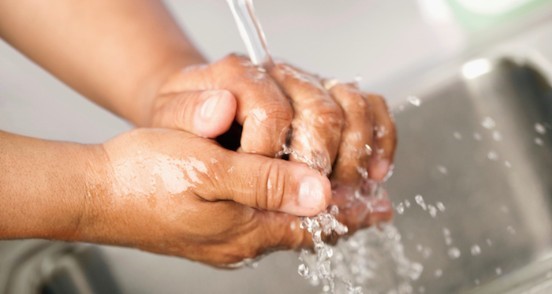Article by Carrie Schuster
It’s no secret that global trends such as urbanization and digitization are disrupting the way we live, work, and interact on a daily basis. With 82% of the North American population now living in urban areas, facilities must adapt to the changing lifestyles of employees, tenants, and visitors, who are spending more time in he places they work and less time at home. Of course, the idea of having the workplace function as a second home comes with the expectation that it will look nice, provide comfort, and be properly maintained and serviced.
But unfortunately when it comes to keeping facilities in tip-top shape, workplace hygiene is often overlooked – which can negatively impact a business’ bottom line. Poor hygiene not only creates a negative first impression, it also impacts the way people connect with the world around them. In fact, seven out of 10 people believe a lack of hygiene limits their participation in urban life.
The key take away: people expect more from today’s facilities.
This begs the question: how can facility managers keep up with the changes in our society while also building and maintaining a positive reputation?
Connecting Hygiene and Well-being
To start, it’s important for facility managers to recognize that good workplace hygiene is integral to the well-being of people, business and society. Having a clean, healthy facility can be the difference between a positive or negative review and a happy or unhappy employee.
In environments where cleanliness is a top priority such as hospitals or food processing centers, hygiene is critical, as it can be a matter of life or death. Companies that choose to value and prioritize their people’s well—being will be seen as much more attractive employer-leading to a happier, more productive workforce.
For instance, of office workers who share a desk or equipment with others, more than 60% report concerns with hygiene. Armed with this data, facility managers can implement new process and procedures that promote good hygiene, such as providing employees with hand sanitizer that is in easily visible locations and encouraging employees to clean shared equipment such as laptops and phones after using them.
Regardless of whether your building is large or small, hygiene is one of the most important steps that can be taken to create and maintain a positive reputation year-round in the eyes of existing and potential customers and staff. By implementing modern, simple hygiene solutions that enhance performance and well being, you can bolster your business’s reputation and create a safer, cleaner environment for all who walk through the doors.
Schuster is brand communications manager of sustainability and hygiene NA/EU for Essity, a global leader in hygiene and health, and the makers of the Tork brand of professional hygiene products. She consults with customers to partner and develop programs with the goal of achieving sustainability through zero waste, and circularity initiatives.
1. https://www.un.o rg/dcvclopment/dcsa/cn/ncw s/populati on/2018·rcvision·of-world-urbanization·prospects.html
2. https:// torkusa.cmo /torksoul tions/ tork-clean-care/
3. https:// wwwb. com/worklifc/a rticle/201 70105·0pen·officcs-are-damaging-our-mcmorics
